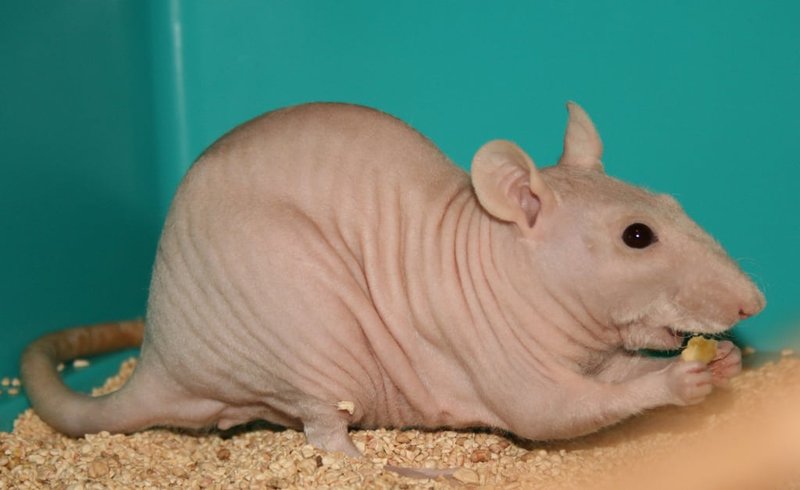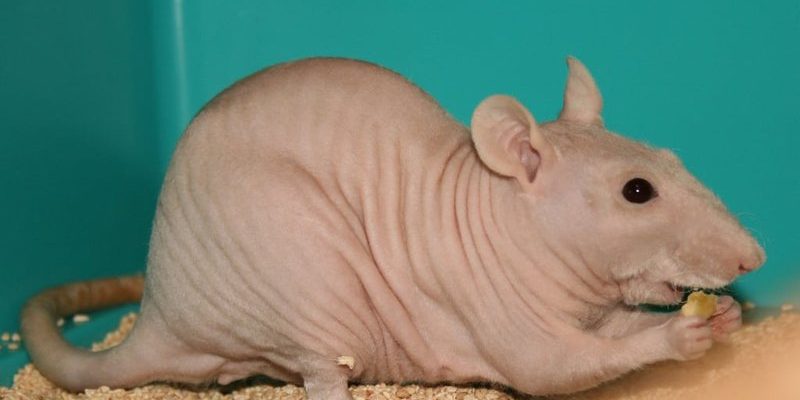
So why focus on hairless rats? For many owners, these bald buddies can be just as loving and playful as their furry counterparts. However, with their absence of fur, they face some unique challenges that can lead to health issues. Let’s dive into the common health concerns these fascinating creatures might face and explore some straightforward prevention tips to keep your little friend thriving.
Skin Issues and Care
One of the most immediate health concerns for hairless rats is skin issues. With no fur to protect them, their skin can become dry, irritated, or even scarred. This can lead to conditions like dermatitis or skin infections, which can be painful for your rat. The absence of fur means they also need a bit more help from you to maintain healthy skin.
You might be wondering how to prevent these problems. Regular cleaning of their living environment is essential. Make sure to change bedding often and provide a clean space to roam. Additionally, frequent baths using a gentle, hypoallergenic shampoo can keep their skin from becoming too oily or dirty. Just be sure to dry them off thoroughly afterward because they are more susceptible to temperature changes without fur.
It’s also a good idea to keep an eye on any signs of irritation. Look for redness, scaling, or excessive scratching. If you notice any of these signs, consult a vet who understands hairless rats.
Respiratory Issues
Respiratory problems can be another serious concern for hairless rats. Due to their genetic makeup, these pets can be more prone to conditions like pneumonia or respiratory infections. This might sound scary, but there are ways to minimize the risks.
First, ensure proper ventilation in their living space. Hairless rats are sensitive to poor air quality, so avoid housing them in damp or dusty environments. You’ll also want to steer clear of strong odors, like those from cleaning supplies or perfumes, as these can irritate their delicate respiratory systems.
Next up is temperature control. Hairless rats can easily become chilled, which can lead to respiratory issues. Keeping their living area at a comfortable temperature helps avoid problems down the road. Think of it like dressing a baby to make sure they’re not too hot or too cold: you want to keep your rat cozy!
Temperature Sensitivity
Speaking of temperature, hairless rats have a unique relationship with warmth and cold. Unlike their furry friends, they can’t rely on a coat of fur to keep them warm, making them especially sensitive to temperature changes. You might notice your rat shivering or seeking warmth if they’re feeling a bit too chilly.
To prevent temperature-related health issues, provide plenty of cuddly spots in their habitat. A soft blanket or a cozy hiding space can work wonders. Additionally, ensure that their cage is placed away from drafts or sudden temperature changes, like near windows or air conditioning vents.
You might also consider using a small heat mat underneath their bedding during colder months. Just be sure it’s safe and monitored, as you wouldn’t want them to become overheated. It’s all about finding that sweet spot for your little buddy!
Nutrition and Weight Management
A balanced diet plays a crucial role in maintaining your hairless rat’s overall health. Their unique physiology means they can easily gain weight, leading to obesity-related health issues. Think of it like us humans; if we’re not careful, we might indulge a little too much and end up feeling sluggish.
Start by feeding them a quality pellet diet designed for rats. Look for options that feature a mix of grains, fruits, and vegetables. Fresh fruits and veggies are great, too, but be sure to introduce them gradually. You don’t want to upset your rat’s stomach!
Portion control is essential. Instead of filling their bowl to the brim, consider measuring out their food to keep their weight in check. Regular weigh-ins can help you track their health over time. If you notice they’re putting on extra pounds, it might be worth cutting back on treats or adjusting their overall food intake.
Heart Conditions
Hairless rats can have a higher predisposition to heart conditions than other breeds. This is partly due to their genetics, which can make it vital to keep an eye on their overall cardiovascular health.
To prevent heart problems, consider regular vet check-ups that include monitoring their heart rate and overall well-being. Keeping them active through playtime is also essential, as exercise helps maintain a healthy weight and strong heart. Just like how we benefit from a good workout, your rat will appreciate the engagement.
You might also want to keep an eye out for any signs of distress such as breathing difficulties or lethargy. If anything seems off, don’t hesitate to reach out to your vet. It’s always better to be safe than sorry!
Socialization and Mental Health
While we often focus on physical health, mental health is just as important for hairless rats. These social creatures thrive on interaction and companionship. Without proper socialization, they can become stressed, leading to behavioral issues.
Provide plenty of opportunities for interaction. This means not just feeding them but also engaging in playtime. You’ll find they love climbing, exploring, and even a bit of gentle wrestling. If you have more than one rat, make sure they’re well-matched, as some can be more territorial or dominant than others.
Consider creating an enriched environment with toys, tunnels, and climbing structures. This helps keep their minds engaged and can prevent boredom. By focusing on their social needs, you’re helping to create a happy and healthy pet.
Regular Veterinary Care
Ultimately, regular veterinary care is a cornerstone of maintaining your hairless rat’s health. A qualified vet who understands the nuances of hairless rats can provide valuable insights into your pet’s well-being.
Routine check-ups should become part of the norm. This way, any potential issues can be caught early. Discuss vaccination options, diet advice, and any specific health concerns during these visits. It’s like going to the doctor for a check-up; it’s all about being proactive instead of reactive.
Remember, keeping an open line of communication with your vet is essential. They can help you navigate any challenges and support your rat’s health journey.
Taking care of a hairless rat comes with unique joys and responsibilities. Understanding common health concerns is crucial to providing them with a happy, healthy life. By focusing on skin care, respiratory health, temperature sensitivity, nutrition, and social needs, you can create an environment where your little friend thrives.
And while it might feel like a lot at times, remember that the bond you build with your hairless rat makes it all worth it. By investing time and effort into their care, you’ll be rewarded with a curious, affectionate companion who adds joy to your life.

